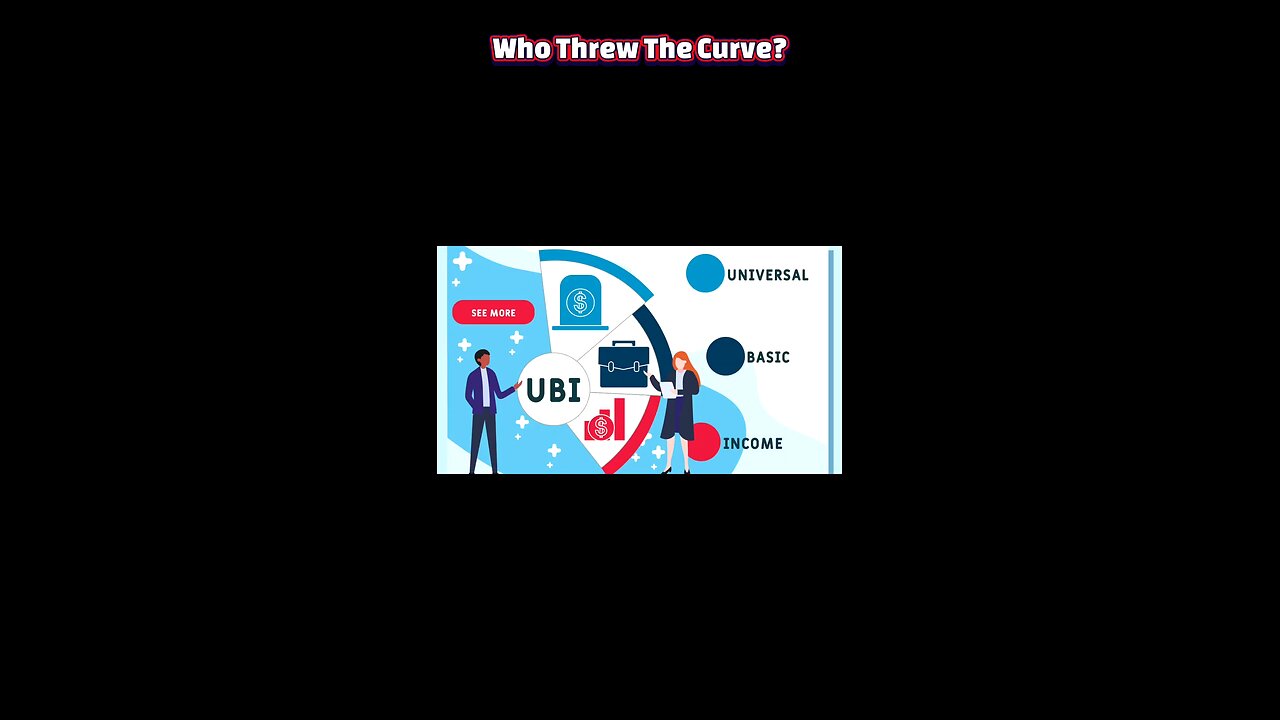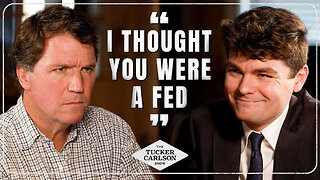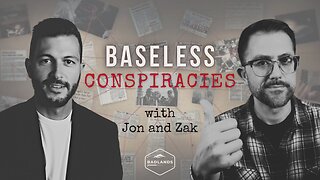Premium Only Content

UBI Unmasked: Panacea or Budget Bloodbath?
#UniversalBasicIncome #UBI #MoneyMishaps #FiscalFuture #PolicyLaughs #CashUtopia #BudgetBusting #EconomicsExplained #SocialExperiment #FutureOfWork
Imagine a world where everyone wakes up richer than they were yesterday, regardless of whether they spent last night binge-watching cat videos or solving quantum equations. That, my friends, is the utopian promise of universal basic income (UBI): a monthly check from the benevolent state that says, “Here’s your slice of the pie, now go forth and live your best life.” Critics bemoan it as fiscal madness, a recipe for red ink and recession. But hey, who doesn’t love a little budgetary brinkmanship with their morning coffee?
On Team Panacea, you’ve got the dreamers who see UBI as the Swiss Army knife of public policy—solving poverty, slashing bureaucracy, and eliminating the soul-crushing indignity of means-testing in one fell swoop. Picture Grandma finally ditching those confusing food stamps apps because Uncle Sam just deposits magic money straight into her bank account. Science says guaranteed cash can boost well-being, spark creativity, and maybe even cure existential dread, no lab coats required. In short, UBI is the kale smoothie of social programs: trendy, healthy, and good for you.
Flip the coin, and you land smack on Fiscal Disaster Boulevard. To pay every adult $1,000 a month, you’d need a budget so big it makes Hogwarts look like a lemonade stand. Cue the tax hikes, budget cuts, or raids on that rainy-day fund you thought was for emergencies, not universal leisure. And when inflation inevitably tags along, that once-magical check starts looking like monopoly money. Suddenly, you’re paying more just to cover the cost of the cash you’re getting, kind of like buying a donut with a donut.
Then there’s the dreaded work-shy apocalypse. Opponents love to flash their doomsday charts: “UBI will turn everyone into professional couch potatoes!” they cry, imagining entire demographics gossiping, binge-watching, and perfecting the art of nap-taking. Yet pilot studies hint that most folks still clock in at jobs or start passion projects, maybe because humans are weirdly driven by purpose, not just paychecks. But hey, if the world really does collapse into hammock-swung leisure, at least we’ll have more time to refine our coffee-drinking techniques.
In the end, universal basic income isn’t a magical cure for all society’s ills, nor a guaranteed gateway to bankruptcy. It’s more like nuclear power: brimming with transformative potential but demanding meticulous engineering, strict safety protocols, and a willingness to confront thorny trade-offs. A carefully calibrated pilot, funded by smarter taxes or trimmed welfare budgets, might reveal whether UBI can deliver that dream slice of pie without giving us indigestion. Until then, it remains both a tantalizing promise and a splendid fiscal test case, take with a grain of salt (and perhaps a side of sarcasm).
-
 30:24
30:24
Liberty Hangout
7 days agoNo Kings Protestors Go CRAZY: Part 1
4.38K66 -
 42:08
42:08
The Why Files
2 days agoLincoln Conspiracy: a Diary, a Mummy and The Escape of John Wilkes Booth
19.4K31 -
 24:42
24:42
James Klüg
3 days agoAnti-Trump Protester HITS Grandma Thinking She’s With Us
12.3K13 -
 2:18:46
2:18:46
Tucker Carlson
10 hours agoTucker Carlson Interviews Nick Fuentes
160K602 -
 2:06:42
2:06:42
FreshandFit
11 hours agoCharleston White Addresses The Backlash From His Charlie Kirk Comments
343K79 -
 1:34:52
1:34:52
Badlands Media
16 hours agoBaseless Conspiracies Ep. 156: The ADL Files – Spies, Lies & the Leo Frank Legacy
88.8K37 -
 2:04:29
2:04:29
Inverted World Live
11 hours ago700 Scientists and Faith Leaders Warn About Super-Intelligent AI, "Time is Running Out" | Ep. 130
87.2K13 -
 2:50:47
2:50:47
TimcastIRL
10 hours agoFOOD STAMPS OVER, Ending Nov 1, Food RIOTS May Spark Trump INSURRECTION ACT | Timcast IRL
237K143 -
 4:46:23
4:46:23
Drew Hernandez
19 hours agoCANDACE OWENS CALLS CHARLIE KIRK STAFF INTO QUESTION?
49.2K52 -
 47:03
47:03
Barry Cunningham
12 hours agoPRESIDENT TRUMP MEETS WITH THE PRIME MINISTER OF JAPAN!! AND MORE NEWS!
66.3K32